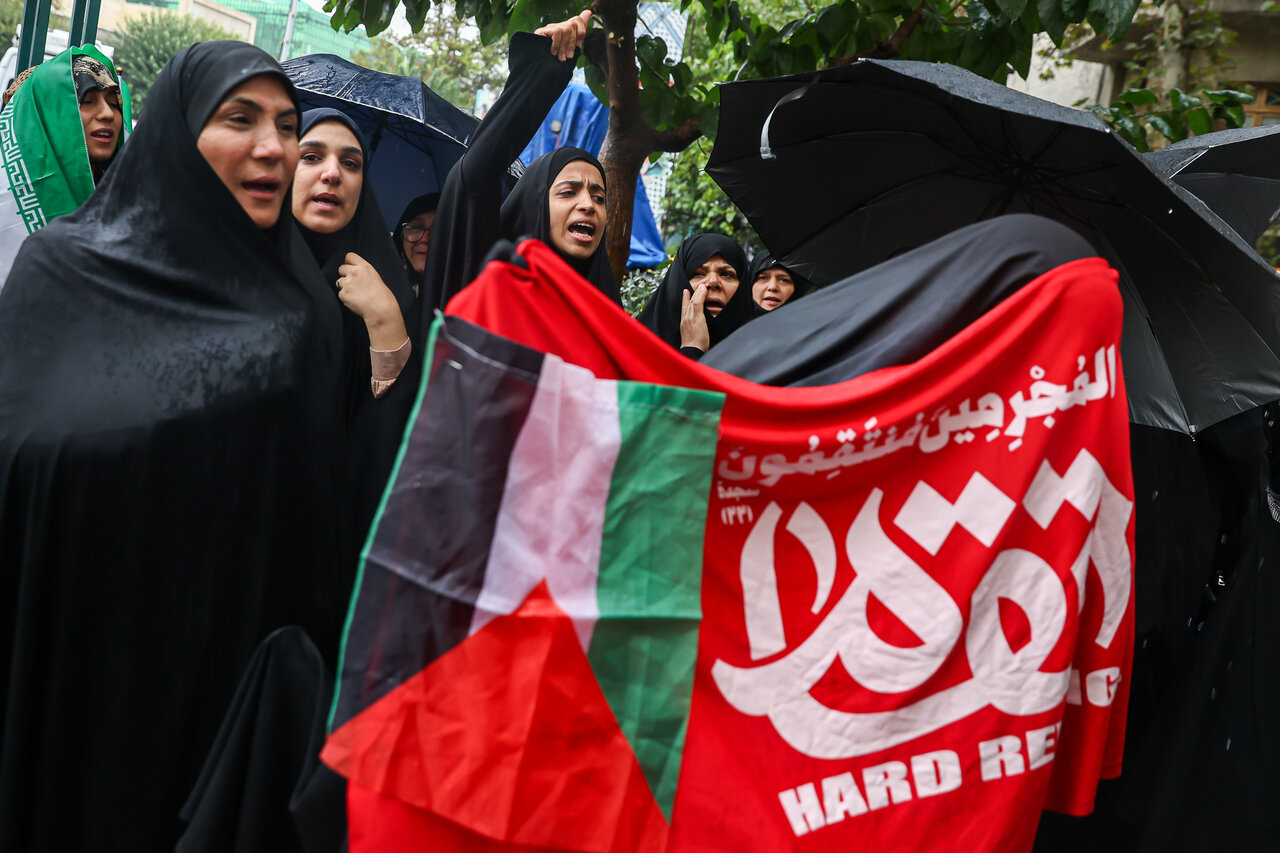Response certain
Tehran poised to retaliate against Israel for assassinations of Haniyeh, Nasrallah, and top IRGC commander

TEHRAN – The new wave of Israeli terrorism in the region, with Lebanon as the epicenter, has once again put the entire West Asia on edge.
In the span of ten days, the regime exploded thousands of pagers and walkie-talkies across Lebanon and assassinated at least 7 high-ranking commanders and officials from the Hezbollah Resistance movement, including Sayyed Hassan Nasrallah who led the group for three decades before getting martyred on Friday.
To assassinate Nasrallah, Israel used 1-ton bunker-buster bombs supplied by Washington. The regime pulverized a number of buildings packed with people, many of whom were women and children. The number of victims is still unclear, but reports suggest as many as 400 people could be dead.
It seems unlikely that violence is going to end here as Israeli officials seem to have got emboldened to commit even more terrorist acts. Peace is not in the picture, but with Israel, Hezbollah, and Iran believed to be preparing their next moves, an all-out regional war could very much be.
How did the region come to this?
The key to understanding how the region was pushed to the brink of war may lie not in Israel's conduct, but in Washington's policies.
The Biden administration has been painting a picture of a disjoint between U.S. efforts and Netanyahu's actions, suggesting that Israel is deliberately resisting American appeals for a ceasefire. U.S. media coverage of phone calls between Biden and Netanyahu usually sketches a frustrated American president, who upbraids the Israeli prime minister for failing to prioritize a ceasefire, and somehow never has the means to throttle the regime’s actions.
After over 11 months of relentless Israeli violence in Gaza, which has drawn in Lebanon, Yemen, and to a lesser extent Iraq and Syria, it is safe to say that such a narrative has now been knocked down. The first official to publicly air his misgivings about the notion that Washington is looking to bring Israel to the negotiating table and seal a ceasefire deal was new Iranian President Masoud Pezeshkian, who hoped he could mend Iran’s tattered ties with the West.
“Claims by the leaders of the U.S. and European countries who were promising ceasefire in exchange for Iran not to respond to the assassination of Haniyeh were all lies,” the president said two days after Nasrallah’s assassination, pointing to the intense diplomatic efforts aimed to influence Iran back in July, the time it was preparing to retaliate against Israel for its killing of Hamas Leader Ismail Haniyeh on Iranian soil. Tehran was asked to hold back in order to allow the ceasefire talks, only restarted after Haniyeh's death, to succeed. No ceasefire is yet in sight two months later.
The trust Tehran put in Washington’s words has spurred criticism among some Iranian analysts and observers. Others, however, point out that all Iran wanted to do was help the Palestinians.
“The fact that the U.S. pleaded with Iran to practice restraint so that a ceasefire deal could be reached and then went back on its words, only shows that Americans are nonchalant about breaking their commitments and promises,” said Amir Ali Abolfath, an expert on American affairs. “It is Washington that should be blamed, not Iran. What Iran did wasn’t out of negligence, it was out of support for Palestinians.”
What’s next?
Israeli soldiers have not managed to “root out” Hamas forces after almost a year in Gaza, something Netanyahu had announced to be the main goal of his killing campaign in the besieged strip. The regime’s airstrikes against positions in Yemen and Hezbollah have not diminished the two groups’ missile and drone capabilities either.
This may have convinced Israel to stick to what it does best: targeted assassinations through acts of terror, which has been its preferred tactic for several decades.
“Meir Dagan, a former head of Mossad, famously advocated for targeting individuals rather than infrastructure, suggesting that to "stop a car," one should "take out the driver." This has more or less stayed with the Israelis throughout the years,” said history researcher and analyst on Resistance forces Vahid Khazab. “I don’t believe the regime will stop here. This is a strategy it is going to keep pursuing. So, there must be a response, even if we don’t want to get baited into a war.”
With Israel’s plans being somewhat predictable, what remains to be seen is how Hezbollah, and more importantly Iran, will play their cards. Tehran has yet to retaliate for the assassination of Haniyeh, and with its disappointment with the U.S. and the killing of one of its main allies who was martyred alongside a high-ranking IRGC official, it has all the more reason to speed up the delivery of its answer.
Furthermore, in a propaganda message published on Monday, Netanyahu hinted he may be moving to Iran next, telling the Iranian people that “Israel is with them” and that Iran “will be free sooner than expected”.
“I believe Iran will finally respond to Israel, but it’s unclear what the nature of that response will be. There have been new and significant developments in the region which require Iran to come up with new approaches,” said Saber Golanbari, a journalist and West Asia expert.
In a statement published on Monday, President Pezeshkian vowed Iran will certainly be responding to Israel’s latest “atrocities”.
